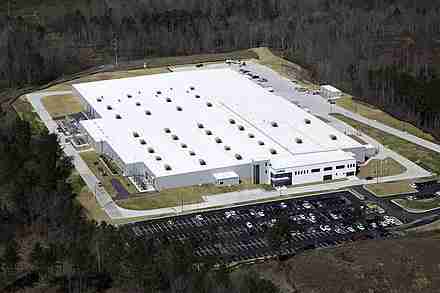Clean energy tax incentives would help make solar more affordable for homeowners and businesses
The letter states how legislation will help grow existing production, revive jobs and lead to investment in significant industries for solar manufacturers. Ongoing geopolitical issues have energized discussion around sourcing electricity–a debate that has never been more urgent than now with tightening environmental controls on fossil fuels consumption worldwide.
In response, the Biden Administration has made a point of meeting with the solar industry and is seeking long-term policy solutions to boost domestic solar manufacturing. In a letter sent to President Joe Biden last week, the Coalition urged the Senate to send the Build Back Better Act to his desk. Earlier in his State of the Union address, Biden emphasized the need for clean energy incentives and encouraged Congress to pass it. The Solar Energy Manufacturing for America Coalition praised President Biden for the action he’s taken to encourage the U.S. industry to grow.

A year ago, the Trump administration announced a policy imposing tariffs on imported solar products, but Vice President Biden has since revised the regulations. He aims to balance domestic manufacturing goals with the need to accelerate the transition to clean energy. While tariffs aren’t the best solution for all stakeholders, lowering them would be a good start. But he may need to do more to get the industry back on track. In the meantime, the government’s action will only make things worse for the American solar industry.
While the Biden administration is working with the industry to find long-term policy solutions, it’s crucial to keep in mind that solar manufacturing is still not at its full capacity in the U.S. The country is dependent on foreign-made solar panels, which makes a competitive advantage necessary for the U.S. market. The President’s message should be heard loud and clear. If President Biden can’t help the industry, he should continue his efforts in the next four years to ensure the industry is healthy and competitive.
While the tariffs were originally imposed during the Trump administration, they have since been reduced to a much lower level. While the current tariffs do not directly harm solar manufacturers, they do hamper the ability to produce solar panels in the U.S. and can hurt the U.S. economy. As a result, the Biden administration’s decision is important for the future of the industry. This is a win for the American consumer.
A comprehensive manufacturing policy is needed to promote the growth of the solar industry in the United States. The Solar Energy Manufacturing for America Act, which passed in March 2018, will allow for a multi-billion-dollar expansion in the industry’s supply chain. Ultimately, the solar manufacturing industry can benefit from policies that encourage the production of renewable energy. Incentives for deployment and manufacturing will help the industry grow. While these policies are not enough to make a difference, they will help solar manufacturers in the U.S. become more widely known.
While the U.S. renewable energy industry is growing rapidly, challenges like tariffs could threaten its future. The trade issues and supply chain disruptions affecting the U.S. solar industry will continue to affect the growth of the solar industry in the United States. But it should not deter the industry’s growth. As an industry, it is a key part of promoting the use of renewable energy in the country and its production. With its strong base, it will be easier to attract investors in solar technology.
The industry is growing rapidly, but could be even more successful with the right clean energy incentives in place
The US solar industry faces a critical moment. The ailing solar industry has shuttered most domestic manufacturing facilities. Calls for the revitalization of clean energy manufacturing in the U.S. have been heard across the country. This bill will help bolster the domestic solar industry and create millions of jobs. The SEMA Coalition estimates that the bill will increase U.S. domestic solar production by 30 GW by 2025, creating 18,000 direct and 60,000 indirect jobs, including a minimum wage of $15 per hour.
SEMA, a nonprofit organization, was formed in 2004 by Delta Electronics, the world’s largest switching power supply company. It was founded by two Taiwanese companies – the Industrial Technology Research Institute of Taiwan, and Delta Electronics. The goal of DelSolar is to produce clean and renewable solar energy and help the environment along with the many other benefits solar provides. Its name is a combination of “Delta” and “solar.” Its mission is to provide consumers with clean and affordable solar energy.
Letter sent to President Biden to include clean energy tax incentives
Source: SEIA News Item






2 thoughts on “Solar Manufacturers Call on Biden to Include Clean Energy Tax Incentives”
Undoubtedly, there is a great deal to learn on this topic. I agree with everything you said. It was all very nicely said. I loved every quote, and I appreciate you sharing the information. Continue inspiring and sharing with others.
What i do not realize is in fact how you are no longer actually much more wellfavored than you might be right now Youre very intelligent You recognize thus considerably in relation to this topic made me in my view believe it from numerous numerous angles Its like men and women are not fascinated until it is one thing to do with Lady gaga Your own stuffs excellent All the time handle it up